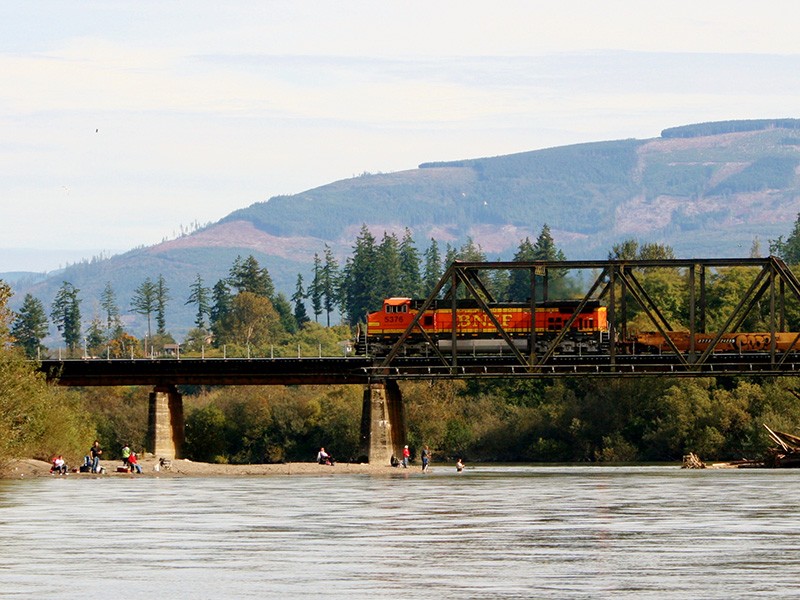Victory: County must first analyze environmental and public health risks of dangerous oil rail project

PHOTO COURTESY OF BRENT M. / FLICKR
By: Earth Justice
Mount Vernon, WA, February 23, 2015 — The Skagit County Hearing Examiner today halted Shell Oil Refinery’s planned crude-by-rail expansion until it undertakes a full, transparent environmental review. The decision blocks the project until such a comprehensive review can be completed.
The Hearing Examiner found that Shell’s proposed project, which would receive hundreds of tank cars of crude oil every week, posed a significant risk of harm to people, water, and wildlife.
The decision finds that:
“The crude oil being brought in large quantities to a small area in the northwest Washington State is highly flammable and explosive. Catastrophes have occurred elsewhere. No one doubts that such a thing could occur here … Unquestionably, the potential magnitude and duration of environmental and human harm from oil train operations in Northwest Washington could be very great.”
“With last weekend’s oil train explosions in Ontario and West Virginia fresh in our minds, this is a commonsense victory for communities along the rail line,” said Jan Hasselman, an attorney with Earthjustice representing the conservation groups. “Before allowing more oil trains, Skagit County must make sure they pose no threat to our communities, our waters, and our way of life.”
In Skagit County, the oil trains pass right through the downtowns of Burlington and Mount Vernon. The oil trains also cross the old Burlington/Mount Vernon bridge spanning the Skagit River immediately above the Anacortes Water Treatment Plant and the old swing bridge spanning the Swinomish Channel directly adjacent to the Padilla Bay National Estuarine Research Reserve. While there is pending state legislation that would enhance public information on oil transport, those laws are not yet on the books.
“The Hearing Examiner correctly found that the enormity of the environmental impacts associated with Shell’s Bakken oil trains warrants a full environmental and safety review,” said Tom Glade, president of local watchdog group Evergreen Islands, one of the appellants. “We applaud the Hearing Examiner for listening to the evidence and to the community.”
Shell is the latest of several projects that would involve increases in transportation of Bakken crude oil through Washington state, none of which received any meaningful environmental review. The decision highlights the failure of the state to grapple with the cumulative impacts of multiple projects, finding: “The total impact of the entirety of the massive upsurge in shipments of crude along this route has not been analyzed. The risks that adding one more actor to this scene poses to the environment and to health and safety can only be appreciated after a cumulative analysis of the entire picture.”
The Hearing Examiner also highlighted the importance of the unique ecosystem near the refinery on Padilla Bay—which support an “astonishing diversity” of aquatic life—and the County’s failure to analyze the risks of an oil spill there. He also observed the importance of the Skagit River for salmon production and the need to review potential spill impacts on salmon habitat.
RE Sources for Sustainable Communities, Friends of the San Juans, ForestEthics, Washington Environmental Council, Friends of the Earth, and Evergreen Islands filed the Shell appeal, represented by Kristen Boyles and Jan Hasselman ofEarthjustice.
